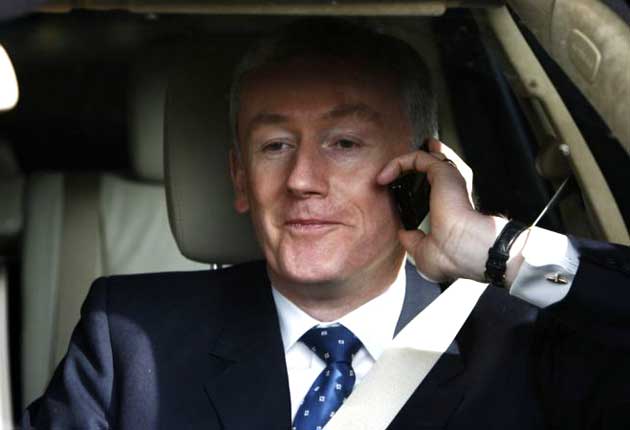Incompetent, but not corrupt: the final word on Goodwin's RBS

His disastrous strategy may have brought Royal Bank of Scotland to its knees, recording the worst corporate losses in UK history, while he still picked up a lucrative pension pot, but yesterday Sir Fred Goodwin was cleared by the City watchdog of breaking any rules.
After an 18-month investigation into the events that forced RBS into seeking a bailout from the taxpayer, the Financial Services Authority (FSA) has ruled out fraud, blaming instead a "series of bad decisions".
Fred the Shred, so called because of his ruthless approach to cutting costs and jobs, came to represent the worst excesses of the banking crisis when it emerged he was to leave the organisation with a £700,000-a-year pension.
The regulator said as it closed the investigation yesterday that the bad decisions that saw the bank post losses of £28bn for 2008 "were not the result of a lack of integrity by any individual, and we did not identify any instances of fraud or dishonest activity by RBS senior individuals or a failure of governance on the part of the board".
There will be no enforcement against the bank or any of the senior managers, the FSA said but added "the competence of RBS individuals can, and will, be taken into account in any future applications" to work in the City.
In the wake of the outrage Sir Fred escaped abroad after his house and car were targeted by vandals. He kept a low profile until emerging this year with a lucrative role as adviser to RMJM, the Scottish architects' firm which has worked on the design of the Scottish Parliament.
RBS, which is 83 per cent owned by the Government, said it "welcomed" the conclusion of the review and was now "wholly focused on our work to restructure the bank and rebuild value for shareholders".
Privately, banking sources said that, while many thought there must have been a deliberate policy behind the bank's troubles, "this review was a bit of a damp squib really."
The unions greeted it with fury however, with Unite labelling the conclusions "an outrage". Its national officer, Rob MacGregor, said: "It is unacceptable to suggest that the behaviour of the management did not 'lack integrity' when they brought RBS to its knees, resulting in thousands of staff losing their livelihoods".
He added: "By failing to bring any formal charges against the RBS executives they have allowed some of the biggest villains of the financial crisis to go on enjoying their millionaire lifestyles whilst taxpayers experience cuts and staff face an insecure future."
Since the departure of Sir Fred, RBS has axed nearly 27,000 staff. Yet in August the group reported it had scraped back into the black. Yesterday, the regulator said the most significant of the bank's bad decisions was the catastrophic €71bn (£60bn) acquisition of the Dutch bank ABN Amro.
Johnny Cameron, who was head of RBS's investment banking division, agreed with the regulator not to accept a full-time job in banking earlier this year. He has since taken an advisory role at Gleacher Shacklock an investment banking advisory firm.
RBS did fall foul of the regulator in August, when it fined the group a record £5.6m for failing to ensure funds were not transferred to people under Treasury sanction. While unrelated to the collapse, it was another black mark against Sir Fred's stewardship.
Subscribe to Independent Premium to bookmark this article
Want to bookmark your favourite articles and stories to read or reference later? Start your Independent Premium subscription today.

Join our commenting forum
Join thought-provoking conversations, follow other Independent readers and see their replies